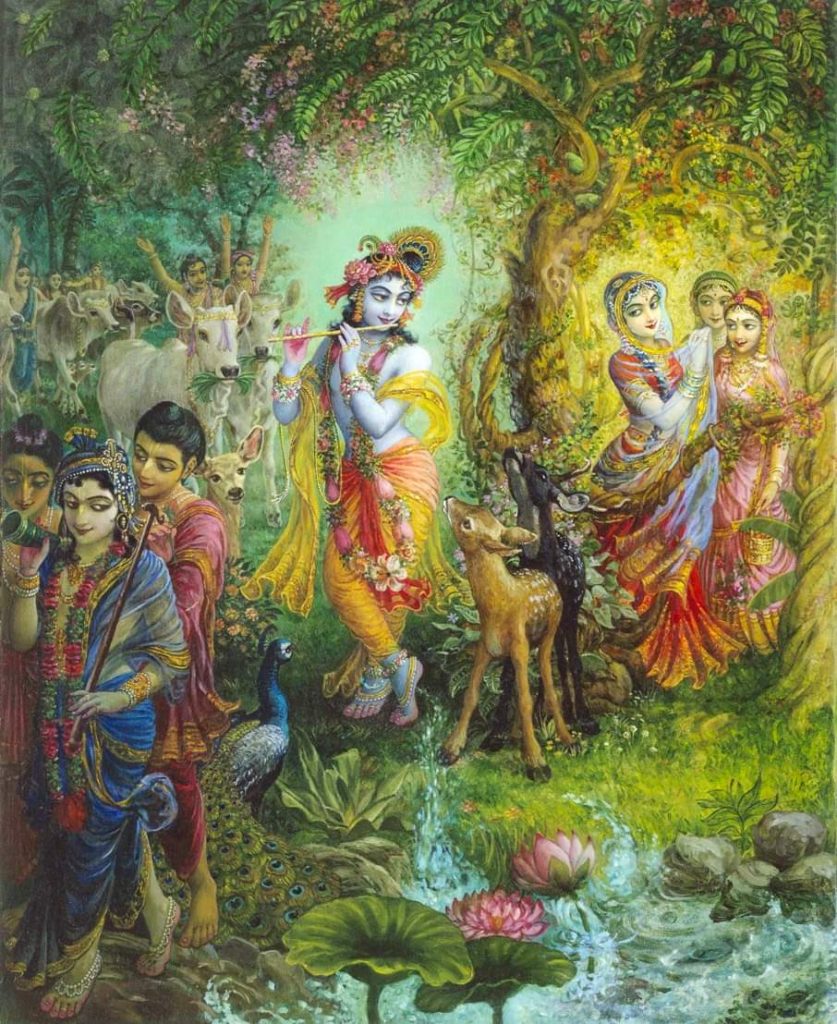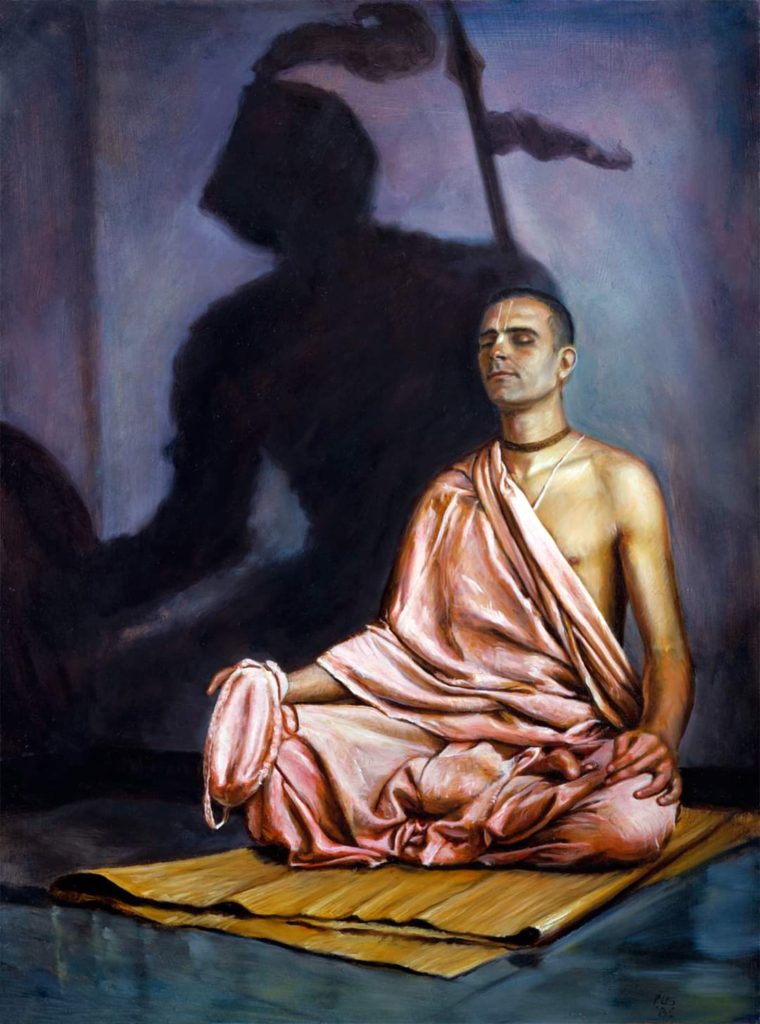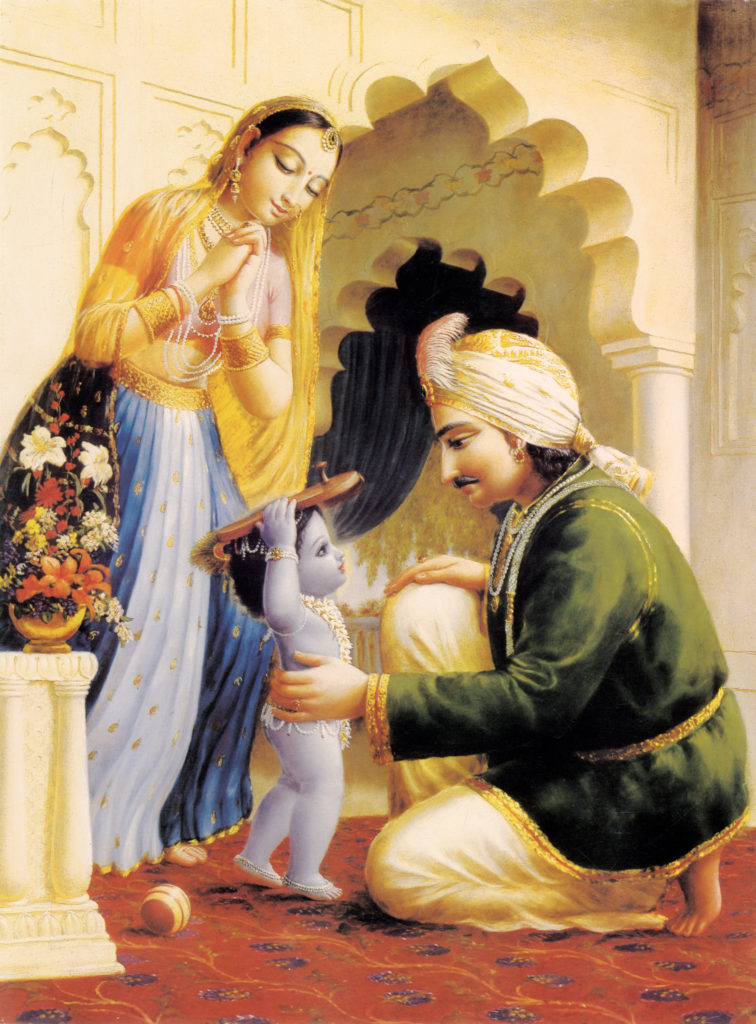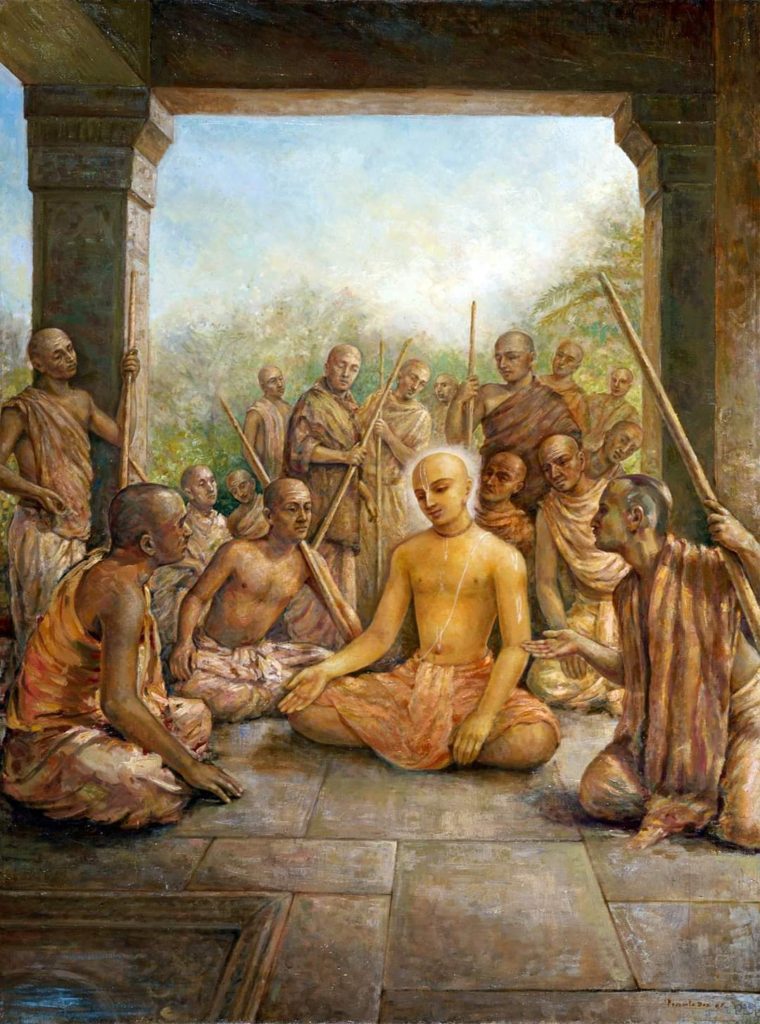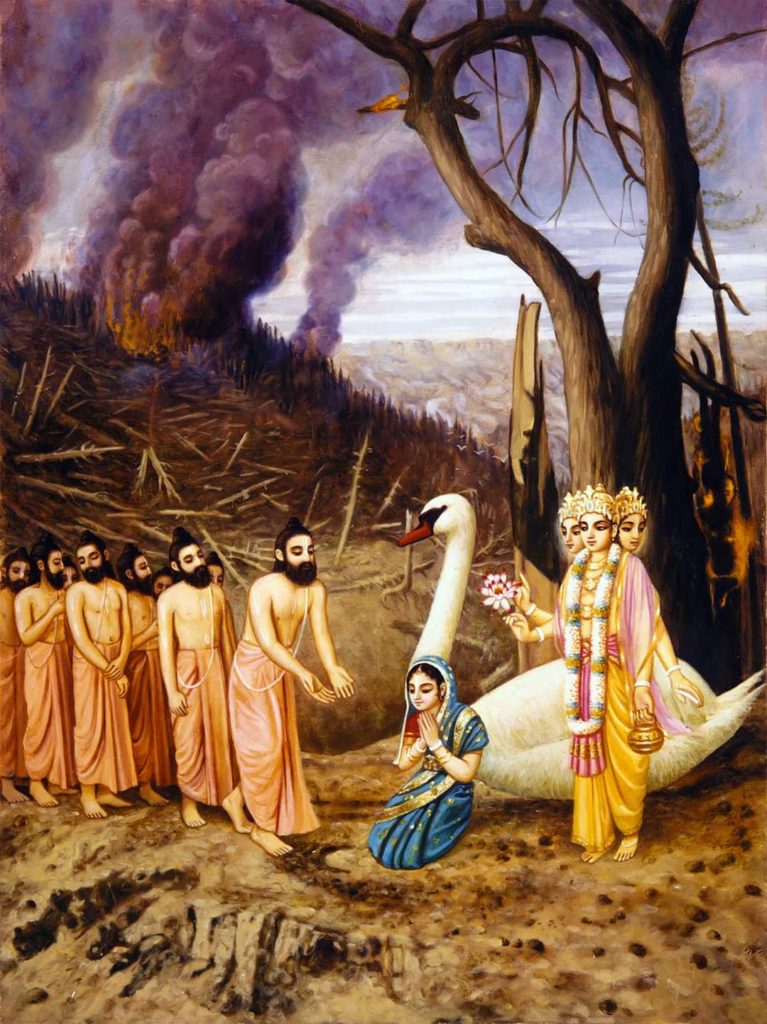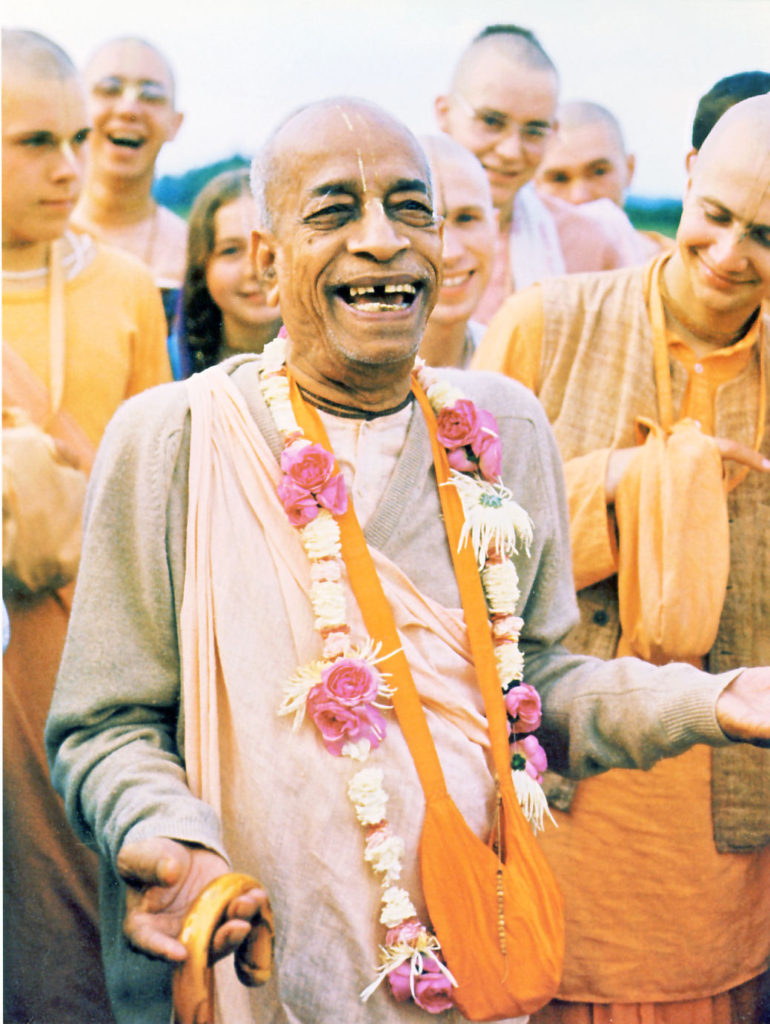Are pure devotees omniscient? Is a pure devotee capable of committing small mistakes, like misspelling words or quoting some partially incorrect information on some material topic or using some supporting evidence from a material source that later may be proven incorrect, or are pure devotees supposed to be always completely perfect in all levels in all they do?
The scriptures mention that pure devotees are not normal human beings. Being connected with the spiritual platform they can describe the spiritual science just like someone describes a photograph he may be seeing. Most of us speak about philosophy as something we studied and memorized, but pure devotees are capable of directly seeing the spiritual reality while describing it.
Some believe that pure devotees must be omniscient and completely aware of everything that is happening around them. They believe that a pure devotee can never commit any kind of mistake. According to this opinion, if it’s proved that someone committed a mistake it means he or she is not a pure devotee.
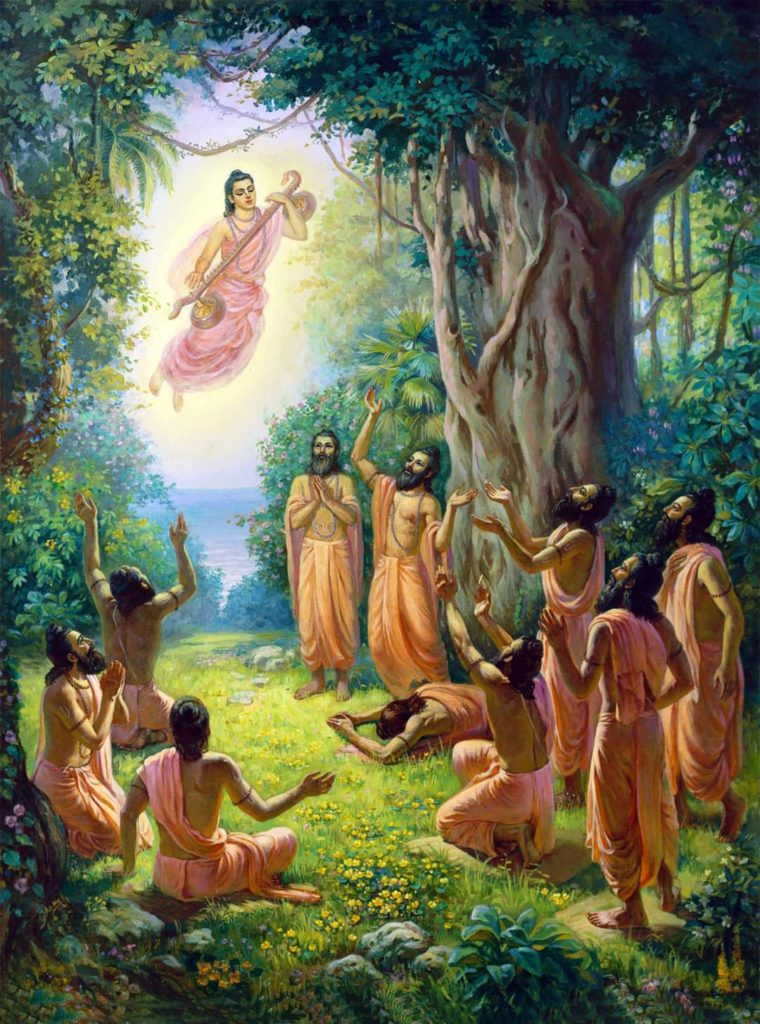
If this point of view is accepted, the next conclusion is that Srila Prabhupada was omniscient and infallible since he was not only a pure devotee of Krsna but also an empowered acarya that came to realize the prophecy of Sri Caitanya Mahaprabhu that the holy names would be chanted in all villages and towns. Before Srila Prabhupada, no one had any idea of how Krsna Consciousness could take hold in the West. Most Vaishnavas of his time accepted this prophecy as just some poetic license. Even amongst other great acaryas, Srila Prabhupada holds an exalted position.
The problem is that if we accept that Srila Prabhupada was omniscient and could not have committed any kind of mistake at any level, we may have difficulty reconciling the idea of Prabhupada being infallible with the perspective that some things he said in certain contexts may not be fully verifiable. If one depends on the acarya being infallible and omniscient to be able to accept his instructions, one may have a crisis of faith if he sees any small detail that may not be fully correct.
Continue reading

